![]() — Home — Business News
— Home — Business News
Weekly Business News from Myanmar
-

Small and Medium Industrial Development Bank (SMIDB) provides three year loan of up to K50 million to rice and corn entrepreneurs without collateral
Small & Medium Industrial Development Bank (SMIDB) will provide a three-year loan of up to K50 million to small and medium enterprises (SMEs) engaging in rice and corn production without collateral, according to a product launch ceremony of SMIDB held at Sule Shangri-La Hotel in Yangon on June 7. "In Myanmar, monsoon paddy as well as summer paddy can be grown. Monsoon paddy can be grown anywhere, but per acre yield depends on weather and geographical conditions. We will render help to rice growing. If there is domestic sufficiency, surplus will be exported to earn foreign exchange. Likewise, corn is an item of value-added goods. So our bank will give loans to corn growers," said SMIDB CEO Dr Zeyar Nyunt. -
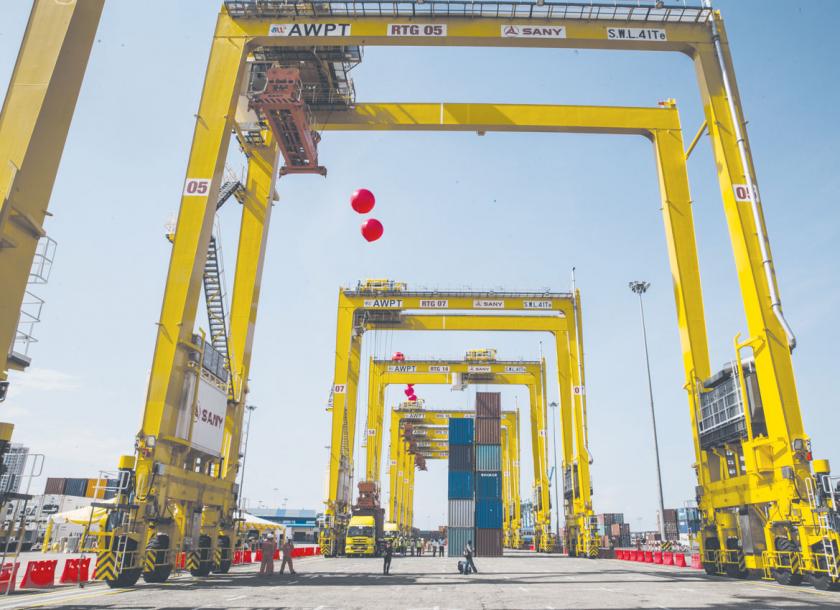
A proposal to construct a new multi-purpose port in Yangon was submitted to Yangon Regional Parliament (U Zaw Aye Maung, Rakhine Ethnic Minister)
A proposal to construct a multi-purpose port in Kawhmu township, southwestern Yangon, was submitted to the Yangon Regional Parliament by U Zaw Aye Maung, Rakhine ethnic minister last week. “Yangon is the gateway to trade and handles up to 95 percent of the country’s imports and exports. The current port capacity in Yangon and Thilawa is still limited relative to the volume of goods handled. While they are now handling a substantial amount of internationally traded goods, these ports will become constrained as trade continues to grow,” said U Zaw Aye Maung. Currently, the Yangon ports are capable of handling 26 ships while Thilawa is able to berth 20 ships. The ports handle goods traded between Myanmar and Singapore, Malaysia, India, China, Sri Lanka, Indonesia, Vietnam, Bangladesh and Thailand. A total of 20 shipping lines call at the Yangon and Thilawa ports, according to U Zaw Aye Maung. The ports are able to handle vessels as large as 20,000 deadweight tonnes. -
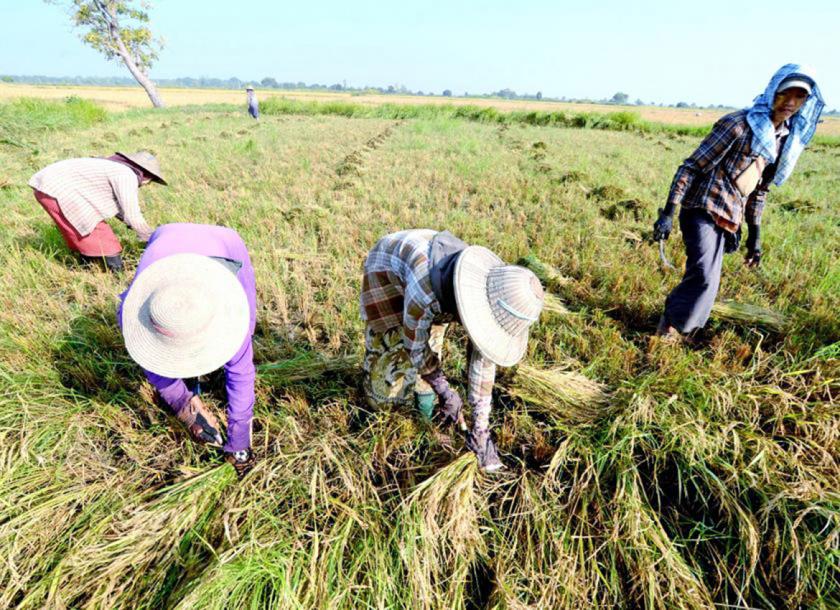
Minister of Agriculture, Livestock and Irrigation (MOALI) launched Myanmar’s Agriculture Development Strategy (ADS) for the next five years
The Ministry of Agriculture, Livestock and Irrigation (MOALI), with the help of Asia Development Bank (ADB), United Nations Food and Agricultural Organisation (FAO) and Livelihoods and Food Security Trust Fund last Friday launched Myanmar’s Agriculture Development Strategy (ADS) for the next five years. Building on the 2016 Agricultural Development Policy, MOALI, with the support of the Agricultural and Rural Development Coordination Group, drafted the five-year ADS with a corresponding investment plan. Under the new ADS, significant production and productivity gains in agriculture and the natural resources sectors were identified as being “immense.” However, Myanmar also faces challenges including limited infrastructure in the rural areas, complex land tenure issue, low agricultural productivity and low competitiveness of agri-food products. As such, the aim of the ADS is to identify the investment priorities of the sector over the short, medium and long term. -
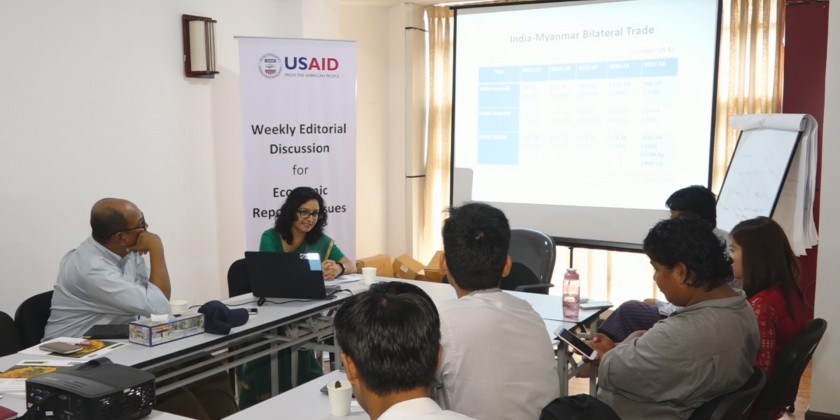
Joint efforts are needed to increase Myanmar- India trade
The joint efforts to increase not only the bilateral trade but also investment between Myanmar and India are in full swing. India has been a major trading partner of Myanmar for many years, and the 11 largest investors in the country. Since the signing of the Myanmar-India trade agreement in 1970, bilateral trade has grown steadily from 328 million USD in 1997-1998 to 2.17 Billion in 2016-2017. But the amount slightly down to about 1.6 Billion USD in 2017-2018 due to decrease in trading especially, pulses and sugar, the first secretary of Indian Embassy in Yangon said. First Secretary, Embassy of India, Shweta Singh said "... There’s just in decreasing export of pulses from Myanmar side, and decrease in import of sugar from India... So we have a target of reaching at least 5 Billion dollars which we should ever... a couple of years ago. But it's not been possible. So I think together we need to make some more efforts, some extra efforts are required to take this forward... " -
World Wide Fund for Nature (WWF), in partnership with Myanmar Food Processors (MFPEA) and Exporters Association (SBFIC) will support the government and industries in promoting a sustainable future for the food & beverage sector in Myanmar
World Wide Fund for Nature (WWF), in partnership with Myanmar Food Processors and Exporters Association (MFPEA) and Savings Banks Foundation for International Cooperation (SBFIC), are launching Tha Bar Wa, a cleaner production project for the food and beverage industry in Myanmar. Tha Bar Wa is a four-year project funded by the European Union (EU) under the SWITCH-Asia Programme, which supports initiatives for sustainable consumption and production across the Asia-Pacific. The Tha Bar Wa project aims to support the government and industry stakeholders as they work towards a more sustainable future for the F&B sector in Myanmar. The launch ceremony takes place today, 29 May 2018 at Rose Garden Hotel, Yangon. Food and beverage is the largest industry in Myanmar, accounting for almost 60 percent of all companies. It is thus important to ensure that the sector develops in a responsible manner that respects and protects the natural environment. -

Miner urges the government authorities to resume gold permit to continue the mining
In the Moehti Moemi mining district in Yamethin, Mandalay, out of the 600 viss of gold extracted by local share-partner companies, more than 500 viss were used to cover the operational cost, U Tun Aung Soe, executive director of National Prosperity Company (NPC) told The Myanmar Times. Local businesses partnered up with the NPC, which was mining gold in Moehti Moemi area, in 2011-17. Over the period of six years, 607 viss of pure gold was extracted, and to receive the permit to continue mining, a news conference was held at the start of this month. In order to crush around 1,500 tonnes of gold daily from the gold extracted by the local companies, some of it was used to cover the operational cost, U Tun Aung Soe explained. “The local companies say that the big company gets 607 viss of gold, but in order for their operations to run, other aspects such as road, electricity, security, and accounting have to be managed and taken care of. Factories have to be built. In order for all this to happen, 501 viss were used to cover the cost. We have explained to them about this with statistics. The remaining 106 viss will be given to the government,” he said. -
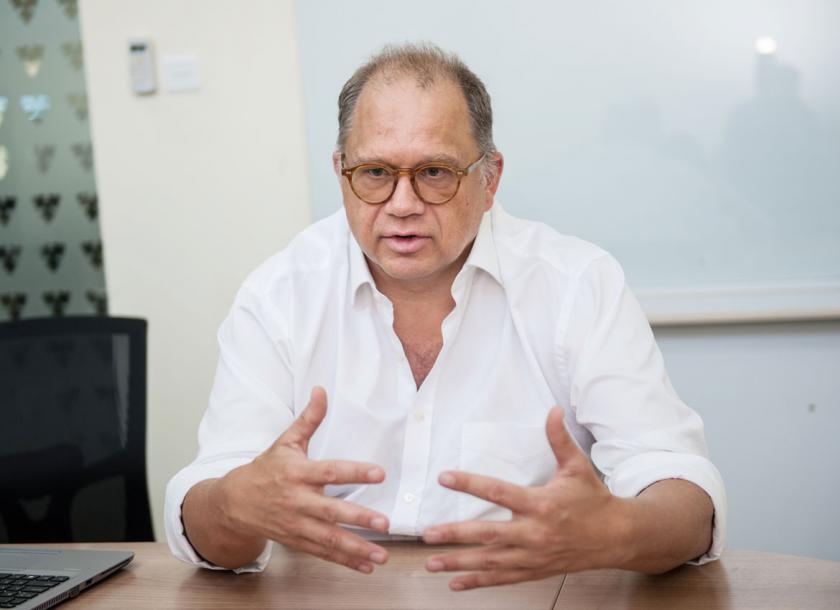
Mr. Michael Jensen, Managing Director of Carlsberg Myanmar, expressed his frustration on the unfair taxes and incredibly bothersome bureaucratic procedures and illegal trading of beer across the Thai and China border
Michael Jensen, managing director of Carlsberg Myanmar, didn’t bother to hide his frustration at the environment in which his brewery has been forced to do business in the country. “We are faced with a tax regime that is completely unfair, incredibly bothersome bureaucratic procedures and illegal trading of beer across the Thai and China borders,” Mr Jensen told The Myanmar Times. All those issues have not only been bad for business. They are forcing the brewer to reconsider its growth plans and put all additional investments on hold. Carlsberg Myanmar, which is controlled by local tycoon U Thein Tun, who also publishes the Myanmar Times, first opened its US$100 million brewery in Bago Region, Yangon, in 2015. It now brews Carlsberg, Yoma and Turborg beers. -
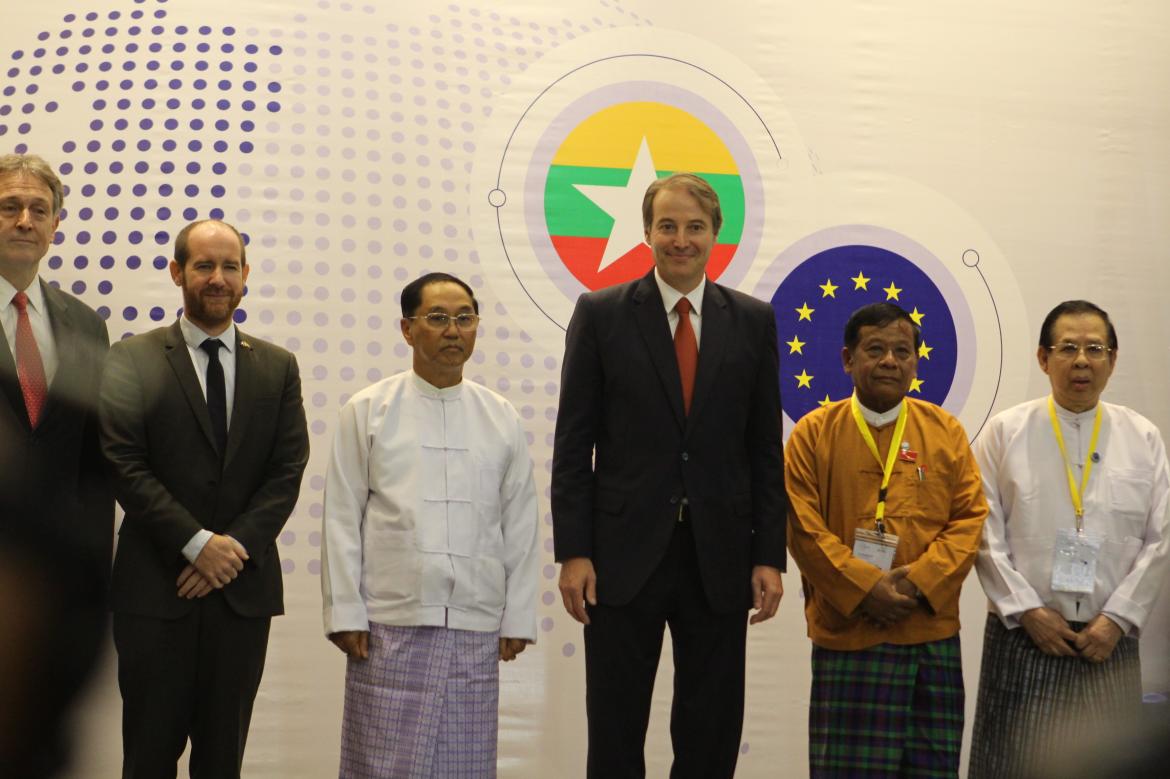
The new companies law will transform the business landscape in Myanmar to attract more investments in priority sectors including agriculture, infrastructure and manufacturing
NAY PYI TAW — The new companies law will “transform” the business landscape in Myanmar when it comes into effect on August 1, Vice President U Myint Swe has told foreign business leaders. Speaking at the opening of the Myanmar-EU Economic Forum in Nay Pyi Taw this morning, Myint Swe said the Myanmar Companies Law was one of several important reforms undertaken by the current government, including the introduction of a new investment law in 2016. He said the government was hoping to attract more investment in priority sectors, including agriculture, infrastructure and manufacturing. “Myanmar’s new investment law offers investors a more transparent, more liberalised and more protected investment environment,” he said. “The new companies law also ensures the transformation of the corporate landscape.” -
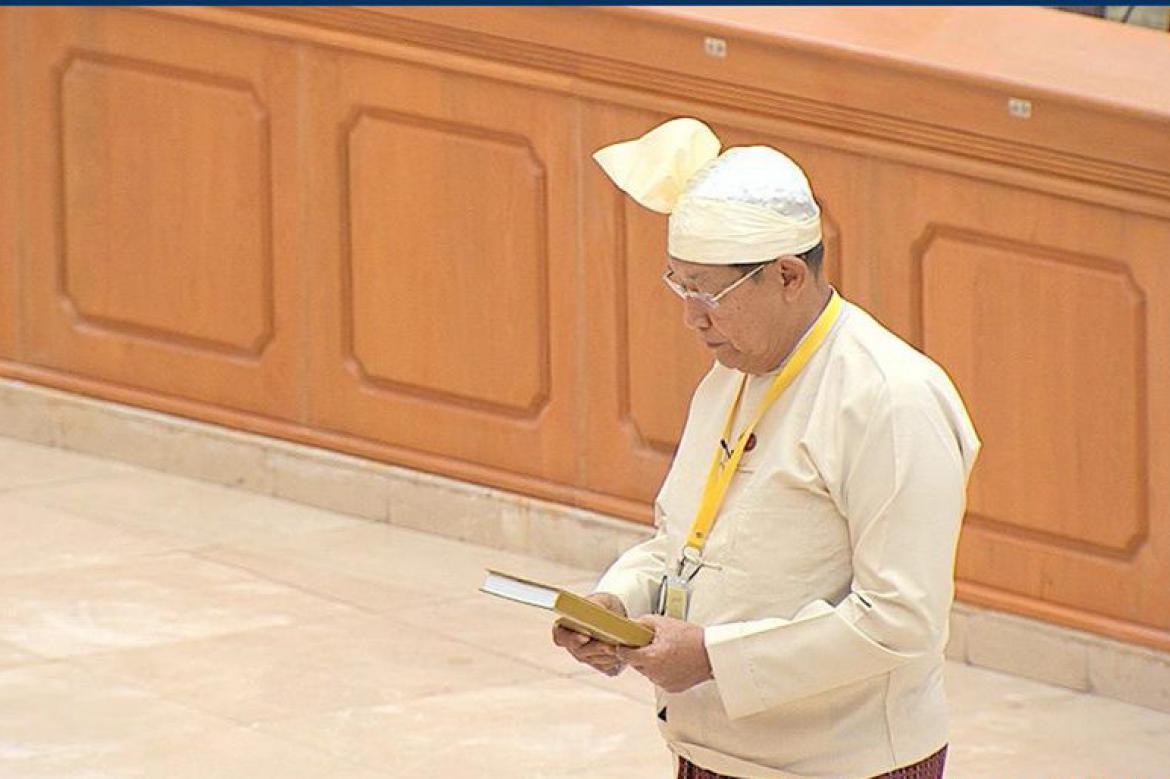
The new minister for planning and finance said that “we can do a lot in two years before the next election”
YANGON — New Minister for Planning and Finance U Soe Win said the ministry can do “a lot” in the two years before the next election, after taking his oath of office in parliament yesterday. The former Deloitte managing partner replaces U Kyaw Win, who resigned in May amid corruption allegations. Soe Win’s appointment has raised hopes that he will provide leadership on much-needed economic reforms, where his predecessor is widely seen to have failed. “We should not underestimate the challenges,” Soe Win told reporters outside parliament. “I will consult with my team and [implement reforms] gradually.” The new minister said he would focus on improving coordination between government ministries and would only take counsel from State Counsellor Daw Aung San Suu Kyi “where needed”. “The state counsellor wants us to make decisions and work independently,” he said, adding: “What I want to say to the people is, keep cool and we are going to try our best.” -
Advans and Yoma Bank signed three financial agreements for microfinance funding to provide micro-loans to over 2,000 new families in Mandalay and Sagaing Regions
Over the course of March 2018, Advans Myanmar and Yoma Bank closed three financial transactions. The deals included two cross-currency swaps for USD 700,000 and a back-to-back term loan of MMK 1,000,000,000. Both the swaps and the back-to-back term loan allowed Advans to fully hedge the exchange rate risk on their overseas borrowings and provide them with local currency funding to grow the micro-finance business. The new funds are estimated to provide micro-loans to over 2,000 new families in the Mandalay and Sagaing Regions. Jana Chmelnizki Kadian, the Managing Director of Advans Myanmar said, “We are glad that after only one year of operation we are able to expand our relationship Yoma Bank as our first local lender. The Yoma team has been remarkably professional, and has shown full support for Advans Myanmar’s mission of providing easily accessible, fair and sustainable financial services to underbanked clients in Myanmar - in order to strengthen local businesses, create and sustain jobs and improve clients’ living standards.”
Business News
Copyright © 2014 Business Information Center All Rights Reserved.







